
Kód: 04536380
Aspects of Split Ergativity
Autor Jessica Coon
In languages with aspect-based split ergativity, one portion of the grammar follows an ergative pattern, while another shows a "split." In this book, Jessica Coon argues that aspectual split ergativity does not mark a split in how ... celý popis
- Jazyk:
 Angličtina
Angličtina - Väzba: Pevná
- Počet strán: 290
Nakladateľ: Oxford University Press Inc, 2013
- Viac informácií o knihe

Mohlo by sa vám tiež páčiť
-

Party's Over
16.26 € -13 %
Darujte túto knihu ešte dnes
- Objednajte knihu a vyberte Zaslať ako darček.
- Obratom obdržíte darovací poukaz na knihu, ktorý môžete ihneď odovzdať obdarovanému.
- Knihu zašleme na adresu obdarovaného, o nič sa nestaráte.
Viac informácií o knihe Aspects of Split Ergativity
Nákupom získate 567 bodov
 Anotácia knihy
Anotácia knihy
In languages with aspect-based split ergativity, one portion of the grammar follows an ergative pattern, while another shows a "split." In this book, Jessica Coon argues that aspectual split ergativity does not mark a split in how case is assigned, but rather, a split in sentence structure. Specifically, the contexts in which we find the appearance of a nonergative pattern in an otherwise ergative language involve added structure - a disassociation between the syntactic predicate and the stem carrying the lexical verb stem. This proposal builds on the proposal of Basque split ergativity in Laka 2006, and extends it to other languages. The book begins with an analysis of split person marking patterns in Chol, a Mayan language of southern Mexico. Here appearance of split ergativity follows naturally from the fact that the progressive and the imperfective morphemes are verbs, while the perfective morpheme is not. The fact that the nonperfective morphemes are verbs, combined with independent properties of Chol grammar, results in the appearance of a split. In aspectual splits, ergativity is always retained in the perfective aspect. This book further surveys aspectual splits in a variety of unrelated languages and offers an explanation for this universal directionality of split ergativity. Following Laka's (2006) proposal for Basque, Coon proposes that the cross-linguistic tendency for imperfective aspects to pattern with locative constructions is responsible for the biclausality which causes the appearance of a nonergative pattern. Building on Demirdache and Uribe-Etxebarria's (2000) prepositional account of spatiotemporal relations, Coon proposes that the perfective is never periphrastic - and thus never involves a split - because there is no preposition in natural language that correctly captures the relation of the assertion time to the event time denoted by the perfective aspect.
 Parametre knihy
Parametre knihy
Zaradenie knihy Knihy po anglicky Language linguistics Psycholinguistics
229.25 €
- Celý názov: Aspects of Split Ergativity
- Autor: Jessica Coon
- Jazyk:
 Angličtina
Angličtina - Väzba: Pevná
- Počet strán: 290
- EAN: 9780199858743
- ISBN: 0199858748
- ID: 04536380
- Nakladateľ: Oxford University Press Inc
- Hmotnosť: 598 g
- Rozmery: 237 × 162 × 22 mm
- Dátum vydania: 19. September 2013
Obľúbené z iného súdka
-
Raising Multilingual Children
11.14 € -23 % -

Parents' and Teachers' Guide to Bilingualism
18.71 € -13 % -

Teaching Languages to Students with Specific Learning Differences
32.01 € -10 % -

Bilingual Edge, the
18.61 € -4 % -

Growing up with Three Languages
23.62 € -18 % -

Bilingual Family
47.77 € -18 % -
Oxford Handbook of Neurolinguistics
291.97 € -
Cambridge Handbook of Linguistic Code-switching
95.44 € -
Selektiver Mutismus bei Kindern
31.81 € -
Rethinking Heritage Language Education
83.16 € -
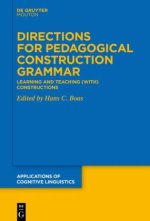
Directions for Pedagogical Construction Grammar
28.02 € -4 % -
How Languages are Learned
55.44 € -

Psycholinguistics of Bilingualism
38.76 € -

Research Methods in Second Language Acquisition - A Practical Guide
60.66 € -

Cognitive Linguistics
38.66 € -9 % -
Introducing Neuro-Linguistic Programming
14.41 € -23 % -

Becoming Fluent
20.14 € -17 % -

Language Strategies for Trilingual Families
16.56 € -23 % -

English Phonetics and Pronunciation Practice
52.57 € -
CLIL in Context Practical Guidance for Educators
83.57 € -
Oxford Handbook of Construction Grammar
73.14 € -
Language and Thought of the Child
23.21 € -4 % -
Understanding Second Language Acquisition
51.96 € -2 % -
Positive Psychology in SLA
58.81 € -
Language Learning and the Brain
160.30 € -

Gesture and Thought
52.57 € -

Reflections on Language Teacher Identity Research
84.29 € -
Why Only Us
21.37 € -8 % -
Linguistics: A Very Short Introduction
10.12 € -22 % -
Cambridge Handbook of Psycholinguistics
85.82 € -

7 Steps to Raising a Bilingual Child
16.97 € -7 % -

Conceptualising Integration in CLIL and Multilingual Education
66.49 € -
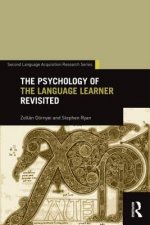
Psychology of the Language Learner Revisited
100.76 € -

How Second Languages are Learned
33.03 € -7 % -
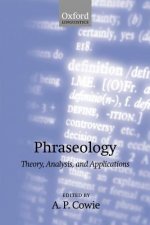
Phraseology
104.75 € -
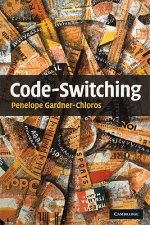
Code-switching
66.79 € -
Teaching and Researching: Autonomy in Language Learning
65.26 € -

Introduction to Multilingualism
42.75 € -

Grammar of Words
51.96 € -

Teaching Grammar in Second Language Classrooms
84.29 € -

Foundations of Language
59.94 € -
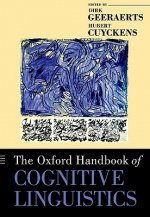
Oxford Handbook of Cognitive Linguistics
113.14 € -
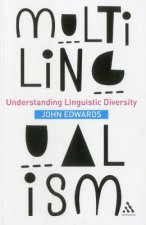
Multilingualism
42.96 € -

Manual for Teaching and Learning Chinese as a Foreign Language
54.21 € -
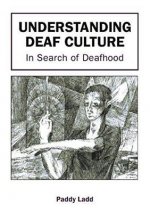
Understanding Deaf Culture
38.15 € -7 % -
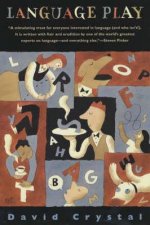
Language Play
42.96 € -
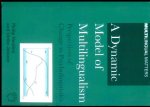
Dynamic Model of Multilingualism
53.60 € -

Grammar of Paraguayan Guarani
44.80 € -

Teaching and Researching Language Learning Strategies
84.29 €
Osobný odber Bratislava a 2642 dalších
Copyright ©2008-24 najlacnejsie-knihy.sk Všetky práva vyhradenéSúkromieCookies



 21 miliónov titulov
21 miliónov titulov Vrátenie do mesiaca
Vrátenie do mesiaca 02/210 210 99 (8-15.30h)
02/210 210 99 (8-15.30h)